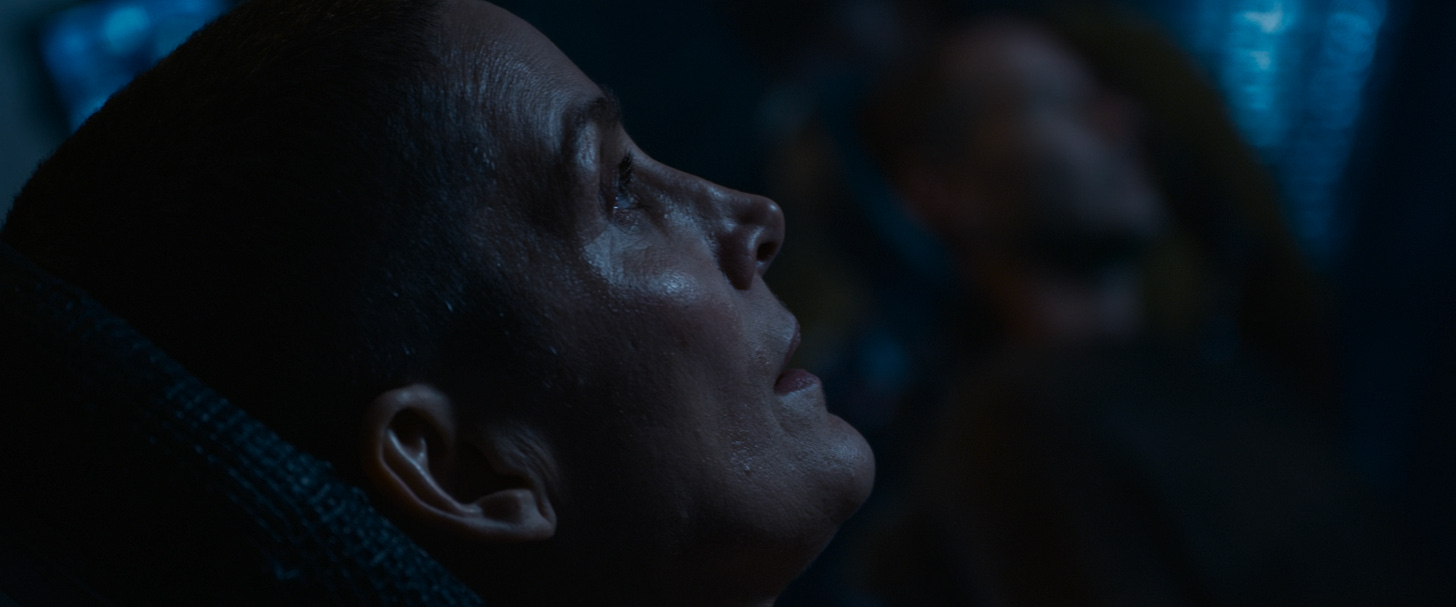I cheered when Trinity (Carrie-Anne Moss) flew in The Matrix Resurrections — another sublime tweak of the first Matrix’s “chosen one” simple-mindedness, which the three sequels go out of their way to upend. I’m prepared to go to my grave arguing Matrix 1’s pernicious palatability, which fostered bad-faith misreadings and actual murder, though I continue to grapple with the Wachowskis’ level of responsibility since that initial entry was, like Keanu Reeves’ Neo, a steely objet constrained by the slick d’art of late-’90s Hollywood. The sisters’ sincerity and almost all of their subsequent output (in which the thorny gender convictions introduced in Bound and deferred by producerial proxy in Matrix 1 come ever more fabulously into focus) go a long way toward righting the imbalance. The three Matrix sequels turn the first film’s adolescent chill to adult warmth. Po-faced power struggles are enlivened by actual sex and goofy humor — a politics of pleasure tinging a Homeric tale of tech-plague tragedy and, now with Resurrections, rebirth.
I’m willing to bet the early coffee-shop conversation between Neo and Trinity in Resurrections is as perturbing to a certain type of Matrix 1 obsessive as the rave-orgy in Reloaded. The lady declaring her star-crossed love is as far as it goes for these mecha-straw men; mutual fucking and chatting are bridges too far. In Reloaded, Neo and Trinity connect fully, bodily. In Resurrections, they talk around the things they know but can’t express, which, despite the literal trappings of the Matrix, comports with a distinctly middle-age malaise. You get used to your prisons and dutifully reinforce the bars. That’s why Trinity going airborne hits me as hard it does. It’s the emo-logical endpoint of what Bugs (Jessica Henwick) says to nu-Morpheus (Yahya Abdul-Mateen II) when she offers him the iconic blue and red pills: “The choice is an illusion. You already know what you have to do.” Trinity doesn’t believe she can fly, she knows she can. (“Balls to bones,” as the absent Oracle might say, after some tweaking of the patriarchal binary.) But I think it’s what she does next that really sells the moment. Facing down an armed black helicopter, readying to fire, Trinity makes another “choice”: “Bye,” she says, before exiting, stage North. I can’t think of a scene that better epitomizes the bliss of leaving behind life’s carceral cacophonies (Twitter, for one). Foundationally it’s little more than a variant on the cat’s paw “It’s Time to Stop Posting” meme. But in execution it’s like a revivifying breath, which Trinity takes when she’s finally unplugged and reconnects with her other half, their hands clasping while the Matrix code fritters away, as it should, in the blurred background.










